I Just Saw The 1940s Movie The Seventh Victim, And Its Queer Undertones Were So Relatable To Modern Identity Struggles
The Seventh Victim’s queer subtleties are so relatable today.
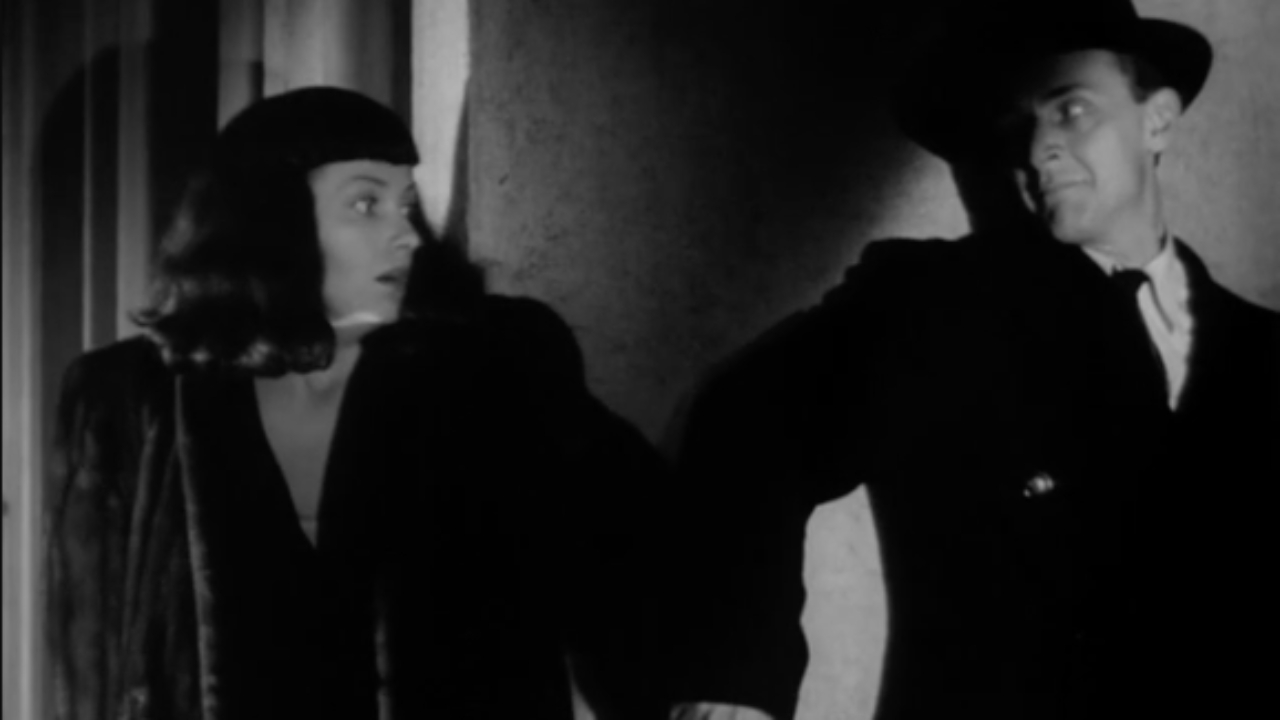
There's been tons of great LGBTQ+ horror films from modern times like The Rocky Horror Picture Show and Jennifer’s Body that show queer characters being comfortable with themselves. However, it's also worth pointing out movies that show individuals throughout time that have been made to feel intense feelings of repression if they didn’t fit the societal “norm.” Even though Mark Robson's The Seventh Victim was made in the 1940s, it blew my mind how it brings out relatable themes to the LGBTQ+ community back then.
According to the film history book "Monsters in the Closet: Homosexuality and the Horror Film," the horror film The Seventh Victim brought out those queer struggles in the character of Jacqueline. After my own viewing of the film, I want to talk about it.
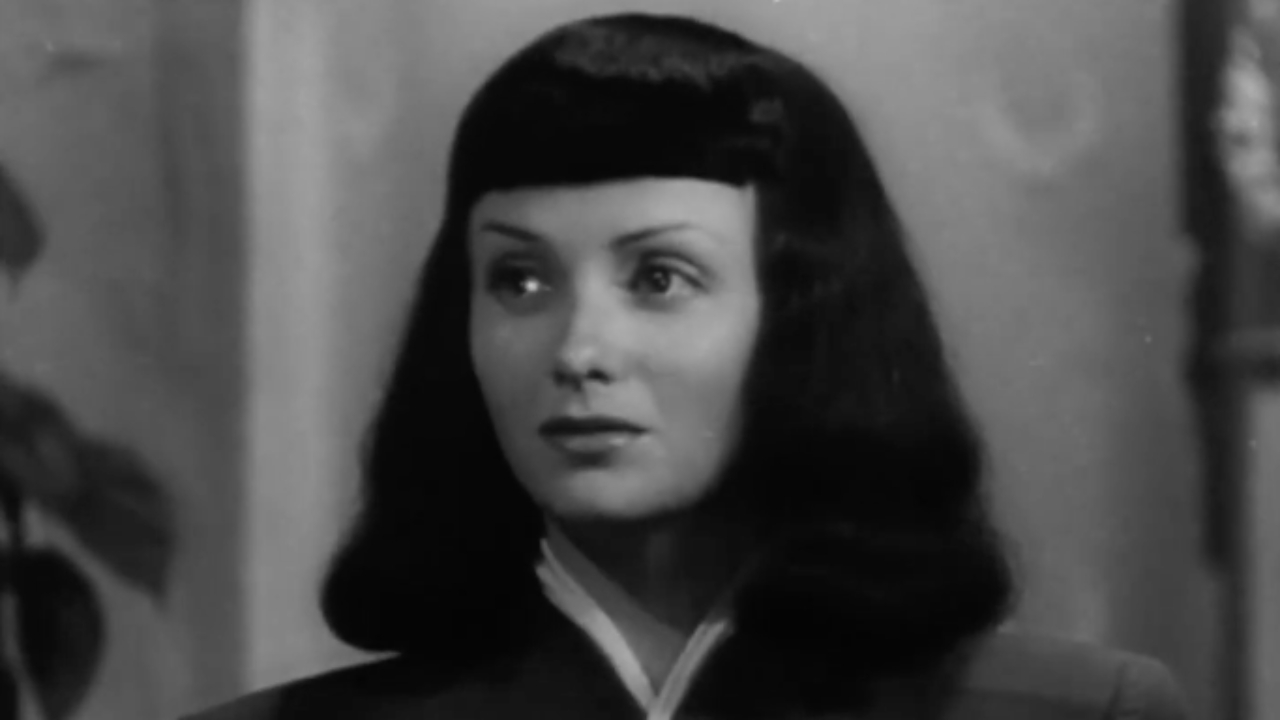
Jacqueline's Fear of Intimacy Suggests Repressed Desires
The Seventh Victim follows a young woman, Mary, on the search for her sister, Jacqueline, who -- little does she know -- has joined a devil-worshiping cult. The character of Jacqueline doesn’t seem to fit the type of female characters you’d see in the best noir movies where you’re either a femme fatale or “the good girl.” She’s not even a woman you’d find in a family-friendly movie who’s a nurturing mother. Jacqueline may know she doesn't fit into the conventional female standard which explains why she hides herself away from everyone who loves her. Because of societal limitations of living, she chooses to keep herself in a bubble.
We find out that Jacqueline has a secret husband, Gregory, who -- we can infer -- she married in order to gain a sense of convention in her life. But as Gregory said, he feels emotionally distant from her and doesn’t even know his own wife any more than Mary knows her own sister. Jacqueline's membership in The Palladists, a cult that worships the devil and death, could be interpreted as Jacqueline feeling lost and self-loathing while failing to accept her queer identity.
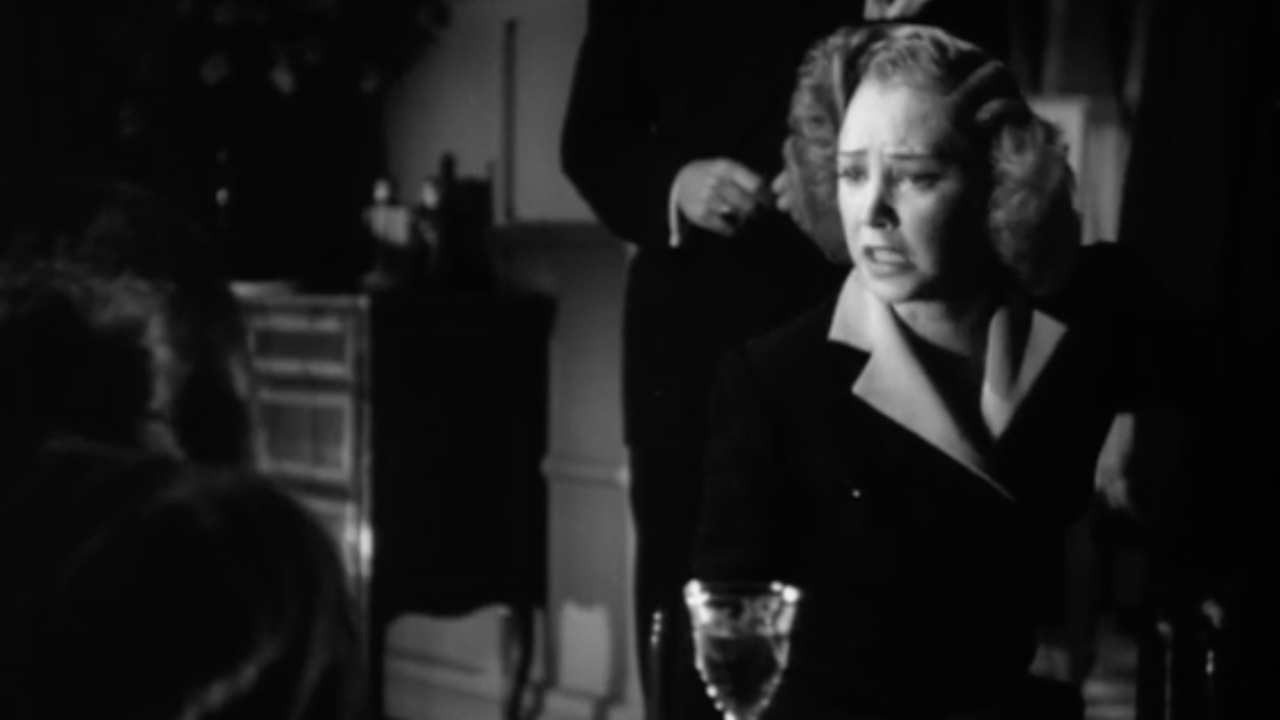
The Relationship Between Jacqueline and Frances is Suggesting More Than Friends
In The Seventh Victim, you could argue that Jacqueline and her fellow Palladist member and co-worker, Frances, could be more than just good friends. It looks like Frances has a huge emotional dependence on Jacqueline. When the Palladist members tell Frances they believe Jacqueline told a psychiatrist about the cult, Frances is the only one to beg the group to spare Jacqueline when they say the solution is for her to die.
The scene that clearly shows Frances’ attachment to Jacqueline is when the Palladists tell Jacqueline to drink the poison to end her life. Frances originally tells her to follow the cult’s orders only to swipe the glass away in tears and tell her “The only time I was ever happy was when I was working with you!” It could be that Jacqueline’s deep respect for Frances was why she was willing to go along with the poison, and Frances’ deep love for her couldn’t bear the thought of watching her die.
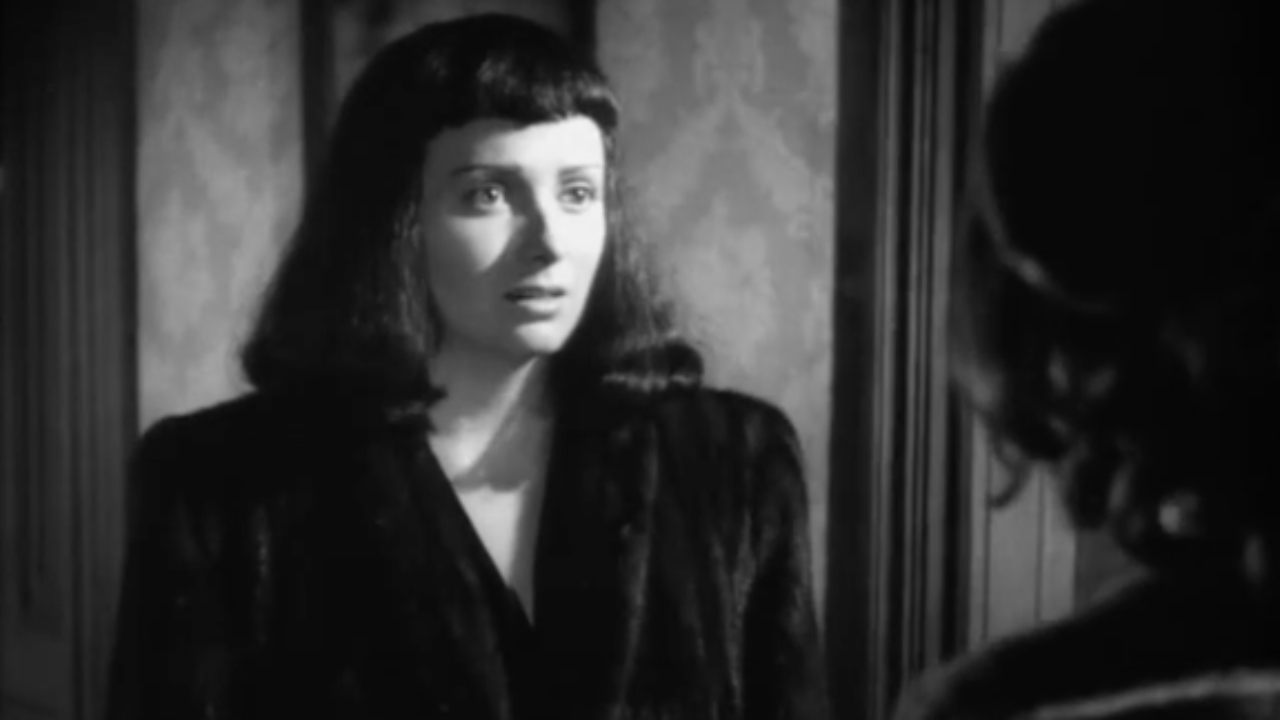
Jacqueline's Isolation Mirrors the Queer Experience
As Mary searches for Jacqueline, she discovers that her sister is leading a double life this whole time. While she initially led the “conventional” life of being a wife to her husband and being the owner of La Sagesse cosmetics company, she abandons both. Jacqueline mixes herself up in a secretive cult that could symbolize the “closet” the queer population hide themselves in due to fear of discrimination.
Your Daily Blend of Entertainment News
Following this interpretation, when Jacqueline joined The Palladists to escape the heteronormative rules she's escaped, she joins another world that has its own strict rules that force conformity. You can tell Jacqueline yearns for freedom but feels helpless just like the queer community may feel plenty of times. Similar to the false mindset presented in the LGBTQ+ drama Prayers For Bobby, the cult makes Jacqueline feel like suicide is the only way to achieve that freedom of repression.
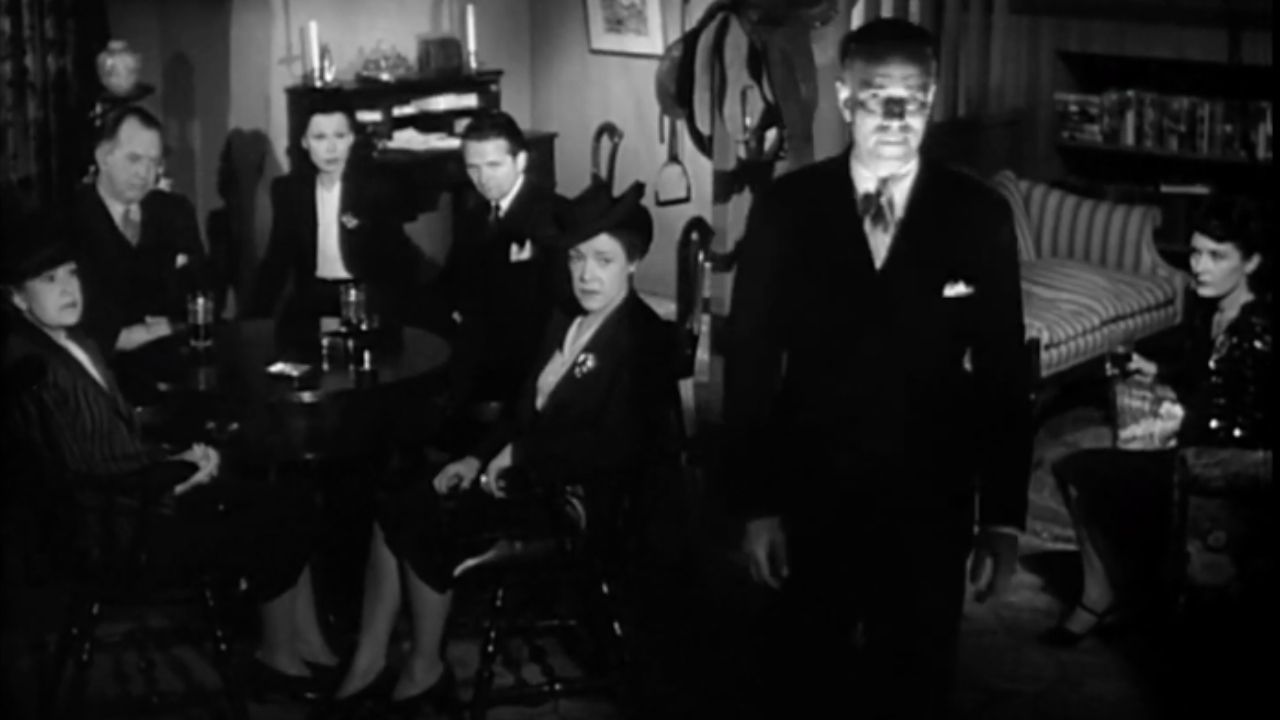
How The Satanic Cult Could Be Seen As Queer-Coded
One interpretation of The Palladists could be that they represent society in wanting to hide or influence people to kill themselves who are different. But, another eye-opening interpretation could be that the satanic cult could be queer-coded themselves. Members of The Palladists are considered outsiders who reject societal norms and operate in secret. Wanting to punish those who reveal the cult’s identity could symbolize the members’ fear of being “outed” to avoid social persecution of the masses.
The Palladists have chosen to reject conventional societal standards like believing in Satan compared to traditional religious deities. They meet in secret rooms hidden in the shadows to avoid being discovered by the masses. Jacqueline probably joined The Palladists because of how they veer away from the “norms,” but also could have felt turned off by their own set of extreme rules. It’s like replacing one form of society for another compared to living freely as yourself without rules.
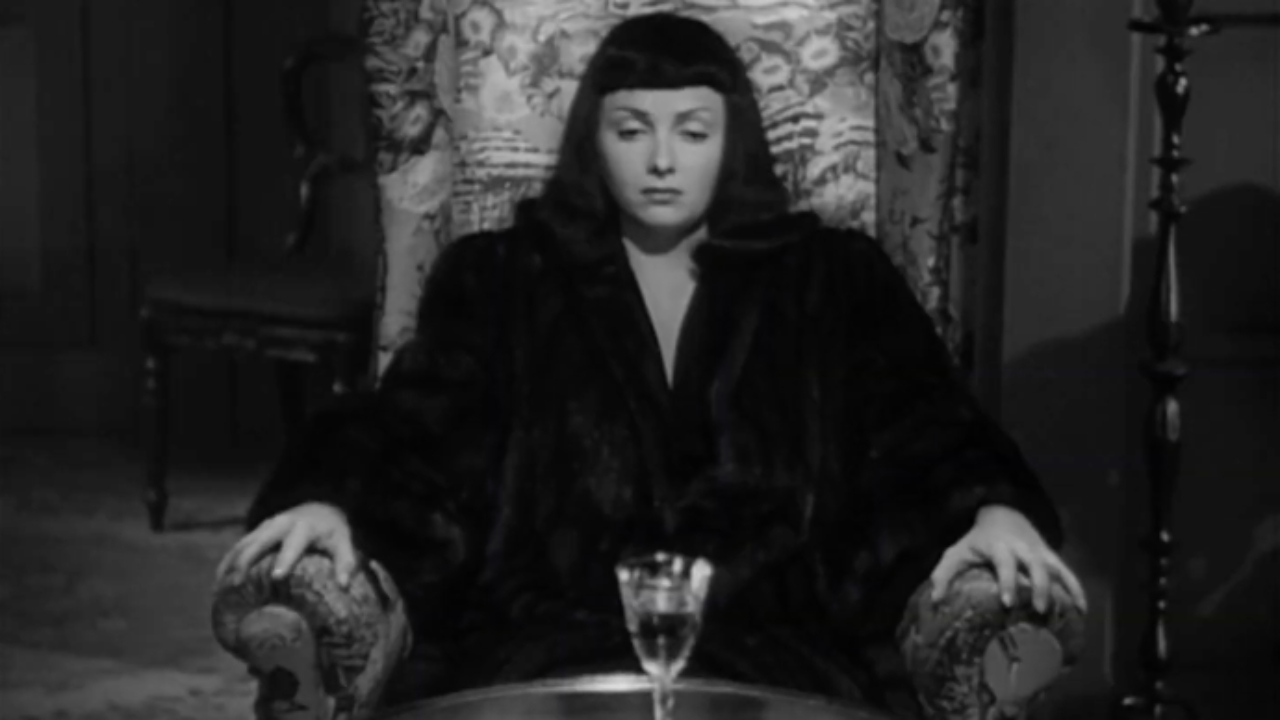
Jacqueline's Character Can Be Read as Gender Nonconforming
Jacqueline’s look doesn’t exactly resemble the stereotypical appearance of many women of the 1940s. Sure, she may not look like a man. But, her style almost resembles the appearance of the fantastic TV mom, Morticia Addams, with her pale skin and her straight jet-black hair. Instead of soft, glamorous dresses, Jacqueline mostly wears an oversized fur coat that doesn’t show off her feminine figure. The mysterious character also doesn’t conform to the “feminine” standards of her time by showing vulnerability through her emotions. For the most part, her demeanor is more reserved.
By Jacqueline leaving her business and her husband, these big steps clearly show she wants to forge her own path away from what society says. Unfortunately, it is because of her nonconformity to The Palladists that the secret cult she joins wants her to end her life. This could symbolize the isolation and persecution the LGBTQ+ community has faced when they don’t blend in with societal gender standards.
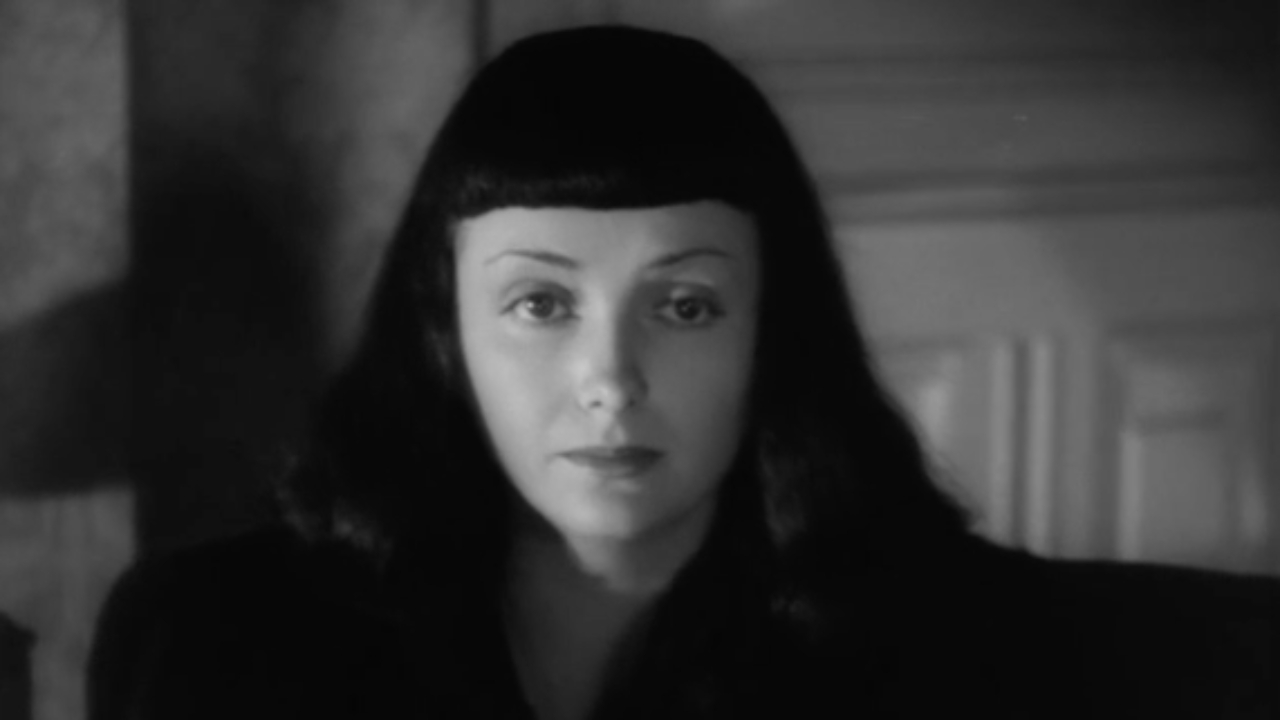
The Ambiguous Ending Could Be Interpreted As A Nod to the Fear of Queer Identity
After being followed by cult members, we assume with Jacqueline entering a shut-in room with a noose followed by the sound of a clunk that the horror film’s mysterious character took her own life. We feel the unresolved tension and tragedy of a character who feels she could neither fully join society nor live as her true self.
Just like many queer individuals during the 1940s felt self-isolation and hopelessness, it's not so far off in today's world feeling like you couldn't come out due to fear of harm or rejection. When you live in a society that rejects an important part of who you are, self-hatred can grow. Jacqueline faced pressure to end her life by the cult and seemingly no longer felt a connection to those around her. Her possible suicide could be a depiction of the sense of fear in her queer identity that can unfortunately still be applicable to how some of today's LGBTQ+ population may feel at times.
Viewed from this perspective, the tragic emotions and outcomes that queer individuals were experiencing through the character of Jacqueline in The Seventh Victim aren't so different from today's LGBTQ+ struggles. While we don’t know anything about her sexuality, we know that she gives off a presence that doesn't fit the mold of societal expectations for women. Despite this film being from the 1940s, we can see watch it and still relate to Jacqueline in not knowing where to turn to when you feel lost and hopeless. The final line, "I run to death, and death meets me as fast, and all my pleasures are like yesterday" may signify the tragic hopelessness and repression that depressed LGBTQ+ individuals often felt back then at a time when queer representation was barely a blip on Hollywood's radar.
Make sure to take a look at our upcoming horror movies to give yourselves chills this spooky season.

Just your average South Floridian cinephile who believes the pen is mightier than the sword.
